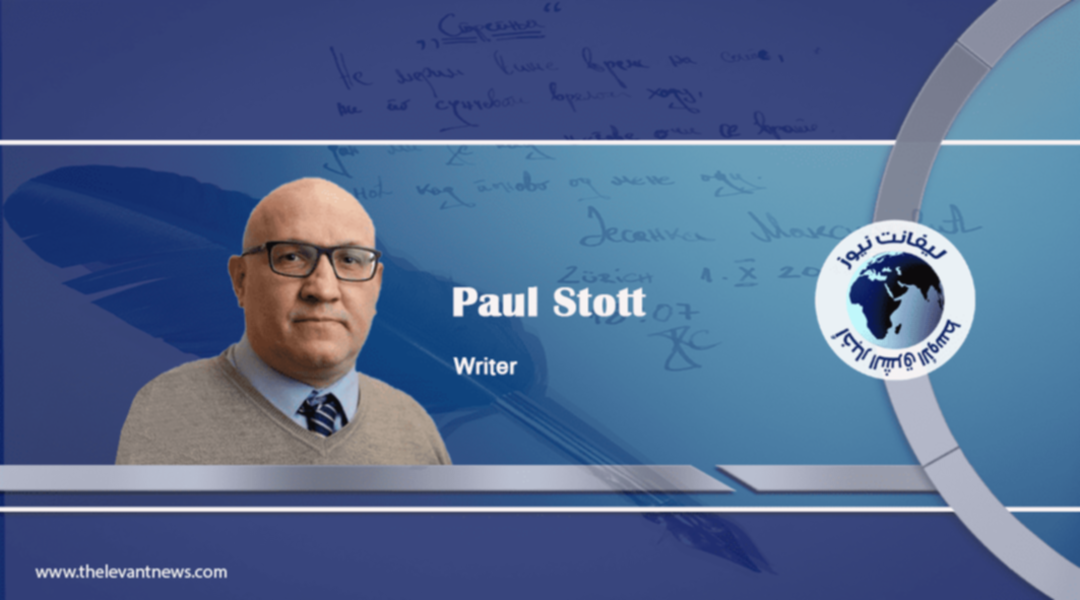-
Europe worries about Turkey, Grey Wolves and Erdogan

The third round of the FA Cup is a quintessentially English sporting occasion – muddy pitches, anxious managers and fans crammed into packed stadia craning for a view of that all-important upset.
This year the stadiums were emptied by Covid, and controversy came from an unexpected quarter, when the Turkish striker Cenk Tosun appeared to celebrate a goal in the Everton v Rotherham match by performing a gesture with the first and fourth fingers of his left hand, whilst bringing his thumb to the second and third fingers. This is reminiscent of the bozkurt, or wolf’s head salute of the Turkish nationalist Grey Wolves organisation. Tosun denied that this was his intention, and the Football Association has cleared him of any offence. There the matter should rest.
Why the sensitivity, though, over the Grey Wolves? The first is the organisation’s history of violence and extremism. The second relates to contemporary concerns about integration and community cohesion, particularly in countries with sizeable Turkish diasporas. The third is the deteriorating diplomatic relationship between Turkey and several European countries.
Known in Turkish as the Ülkü Ocakları (Idealist Hearths) the Grey Wolves are a fiercely nationalist grouping strongly opposed to minority groupings, mostly notably the Kurds. Pan-Turkic, it promotes an expansionist Turkey which would extend its borders significantly east and even into parts of China populated by the Uyghurs. Founded by Colonel Alparslan Turkes (1917 – 1997) the Grey Wolves gained notoriety in the political violence between left and right which shook Turkey in the 1970s. In 1978 this turned into sectarian violence and they were involved in the massacre of over 100 Alevis in the city of Maras. Having been given a long leash by the Turkish state, the 1980 military coup saw Turkes and many of his supporters jailed. In 1981 a Grey Wolf, Mehmet Ali Agca, attempted to assassinate Pope John Paul II in Rome.
Nationalists have found much to satisfy themselves with in recent years in the era of President Erdogan. Turkey’s Nationalist Action Party (MHP), also created by Turkes, has worked with Erdogan’s AKP, and the Grey Wolves have expressed public support for domestic policies such as the restoration of Istanbul’s Hagia Sophia mosque to Islam. The collapse of Turkey’s peace process with the Kurds, aggressive language towards Greece and Cyprus, and support for Azerbaijan in the recent conflict with Armenia, further cement this relationship. With Turkish forces increasingly deployed beyond its borders, the Grey Wolves salute may be observed among both rank and file soldiers and Turkey’s paid mercenaries.
Erdogan views Turkish emigres and their descendants in countries such as Germany, Austria and Holland as Turks. In 2012 he changed the law to allow Turkish citizens living abroad to vote in its elections. With at least 5.5 million Turks resident in western Europe, cities such as Rotterdam and Cologne saw huge AKP rallies. European elites had to reconcile the increasing presence of Turkish politicians with their own domestic problems - low levels of social cohesion, rising support for anti-immigration parties, and street clashes between Turkish nationalist emigres and Kurds. When Germany banned Erdogan from speaking on its territory, he responded in 2018 by holding a photo opportunity in the UK with two German footballers of Turkish descent, Ilkay Gundogan and Mesut Ozil. They were joined by Everton’s Cenk Tosun.
European concerns about the need to keep Turkey’s politics at arm’s length, have intensified. Accusations of Turkish intelligence operations against dissidents have surfaced, with Imam’s allegedly deployed as spies. Austria has accused Turkey of fomenting street clashes on its territory. Last November, France proscribed the Grey Wolves after violence in Lyon between Turkish nationalists and Armenians. A memorial to the Armenian genocide of 1915 was vandalised with graffiti in support of both the Grey Wolves and Erdogan. The bozkut salute is now illegal in Austria, and whilst a ban on the Grey Wolves appears to be off the table in Germany, the Office for the Protection of the Constitution has noted with concern the political influence of Turkish nationalists, as well as the actions of Turkish intelligence agencies in Germany.
In the UK, the Grey Wolves have had a much lower profile. Its actions appear more sedate, for example attending demonstrations in support of the Uyghurs in China. At the Londra Ülkü Ocakları café in north London, middle aged men rally underneath the Turkish flag, and images of Colonel Turkes and of howling wolves. It seems a long way however from the divisions in Turkey, France or Germany. Britain will hope it remains so.

Dr Paul Stott
You May Also Like
Popular Posts
Caricature
BENEFIT AGM approves 10%...
- March 27, 2025
BENEFIT, the Kingdom’s innovator and leading company in Fintech and electronic financial transactions service, held its Annual General Meeting (AGM) at the company’s headquarters in the Seef District.
During the meeting, shareholders approved all items listed on the agenda, including the ratification of the minutes of the previous AGM held on 26 March 2024. The session reviewed and approved the Board’s Annual Report on the company’s activities and financial performance for the fiscal year ended 31 December 2024, and the shareholders expressed their satisfaction with the company’s operational and financial results during the reporting period.
The meeting also reviewed the Independent External Auditor’s Report on the company’s consolidated financial statements for the year ended 31 December 2024. Subsequently, the shareholders approved the audited financial statements for the fiscal year. Based on the Board’s recommendation, the shareholders approved the distribution of a cash dividend equivalent to 10% of the paid-up share capital.
Furthermore, the shareholders endorsed the allocation of a total amount of BD 172,500 as remuneration to the members of the Board for the year ended 31 December 2024, subject to prior clearance by related authorities.
The extension of the current composition of the Board was approved, which includes ten members and one CBB observer, for a further six-month term, expiring in September 2025, pending no objection from the CBB.
The meeting reviewed and approved the Corporate Governance Report for 2024, which affirmed the company’s full compliance with the corporate governance directives issued by the CBB and other applicable regulatory frameworks. The AGM absolved the Board Members of liability for any of their actions during the year ending on 31st December 2024, in accordance with the Commercial Companies Law.
In alignment with regulatory requirements, the session approved the reappointment of Ernst & Young (EY) as the company’s External Auditors for the fiscal year 2025, covering both the parent company and its subsidiaries—Sinnad and Bahrain FinTech Bay. The Board was authorised to determine the external auditors’ professional fees, subject to approval from the CBB, and the meeting concluded with a discussion of any additional issues as per Article (207) of the Commercial Companies Law.
Speaking on the company’s performance, Mr. Mohamed Al Bastaki, Chairman BENEFIT , stated: “In terms of the financial results for 2024, I am pleased to say that the year gone by has also been proved to be a success in delivering tangible results. Growth rate for 2024 was 19 per cent. Revenue for the year was BD 17 M (US$ 45.3 Million) and net profit was 2 Million ($ 5.3 Million).
Mr. Al Bastaki also announced that the Board had formally adopted a new three-year strategic roadmap to commence in 2025. The strategy encompasses a phased international expansion, optimisation of internal operations, enhanced revenue diversification, long-term sustainability initiatives, and the advancement of innovation and digital transformation initiatives across all service lines.
“I extend my sincere appreciation to the CBB for its continued support of BENEFIT and its pivotal role in fostering a stable and progressive regulatory environment for the Kingdom’s banking and financial sector—an environment that has significantly reinforced Bahrain’s standing as a leading financial hub in the region,” said Mr. Al Bastaki. “I would also like to thank our partner banks and valued customers for their trust, and our shareholders for their ongoing encouragement. The achievements of 2024 set a strong precedent, and I am confident they will serve as a foundation for yet another successful and impactful year ahead.”
Chief Executive of BENEFIT; Mr. Abdulwahed AlJanahi commented, “The year 2024 represented another pivotal chapter in BENEFIT ’s evolution. We achieved substantial progress in advancing our digital strategy across multiple sectors, while reinforcing our long-term commitment to the development of Bahrain’s financial services and payments landscape. Throughout the year, we remained firmly aligned with our objective of delivering measurable value to our shareholders, strategic partners, and customers. At the same time, we continued to play an active role in enabling Bahrain’s digital economy by introducing innovative solutions and service enhancements that directly address market needs and future opportunities.”
Mr. AlJanahi affirmed that BENEFIT has successfully developed a robust and well-integrated payment network that connects individuals and businesses across Bahrain, accelerating the adoption of emerging technologies in the banking and financial services sector and reinforcing Bahrain’s position as a growing fintech hub, and added, “Our achievements of the past year reflect a long-term vision to establish a resilient electronic payment infrastructure that supports the Kingdom’s digital economy. Key developments in 2024 included the implementation of central authentication for open banking via BENEFIT Pay”
Mr. AlJanahi concluded by thanking the Board for its strategic direction, the company’s staff for their continued dedication, and the Central Bank of Bahrain, member banks, and shareholders for their valuable partnership and confidence in the company’s long-term vision.
opinion
Report
ads
Newsletter
Subscribe to our mailing list to get the new updates!





















